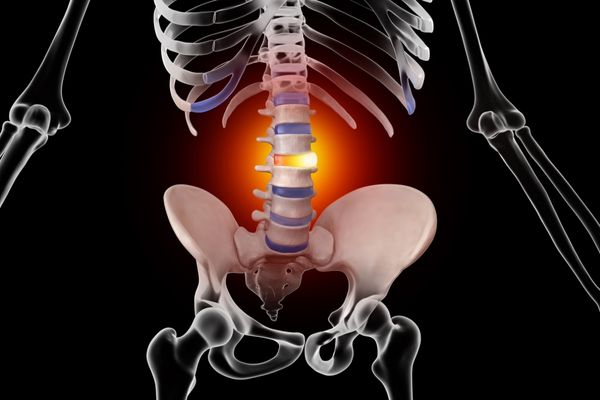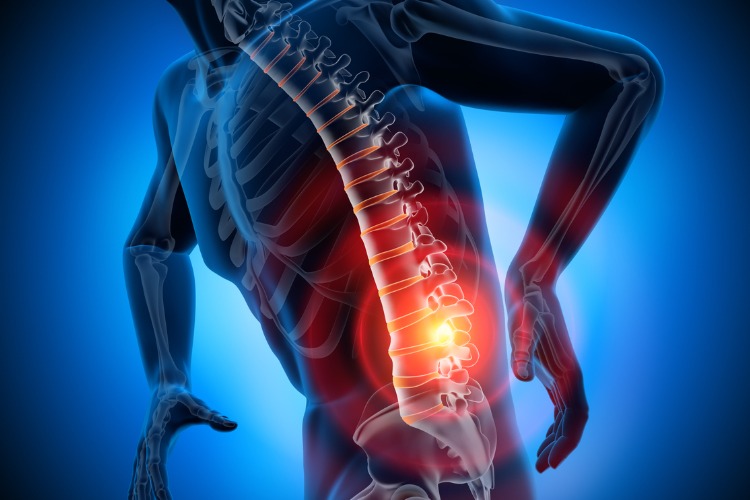If you’ve been told you have a herniated disc, you might assume surgery is the only answer. But can herniated discs heal without surgery? The truth is, they can often heal over time, especially with the right kind of support. One approach to consider is chiropractic care.
Before scheduling an appointment, take a moment to find out how the healing process works, and how chiropractic treatments can help you feel better without needing to go under the knife.
What is a Herniated Disc?
Your spine is made up of small bones (vertebrae) stacked on top of each other, with rubbery cushions in between called discs. These discs have a soft, gel-like center and a tougher outer shell. They act as shock absorbers and allow you to bend, twist, and move comfortably.
A herniated disc happens when the soft center pushes out through a tear in the outer shell. Some people call this a “slipped disc” or “ruptured disc.” It often puts pressure on nearby nerves, which can cause a mix of symptoms depending on where it occurs.
Common disc herniation symptoms include:
- Sharp or burning pain in the back or neck.
- Radiating pain down the legs (sciatica) or arms.
- Tingling or numbness.
- Muscle weakness.
- Difficulty sitting, standing, or walking for long periods.
Most herniated discs happen in the lower back, but they can also occur in the neck or, even in the upper back.

What Causes a Herniated Disc?
Discs naturally lose flexibility with age, which makes them more prone to damage. But injury or stress can speed things up. Here are some common causes:
- Repetitive strain from lifting, twisting, or bending.
- Sudden trauma such as a fall or car accident.
- Poor posture, especially from long hours at a desk.
- Weak core muscles that fail to support the spine.
- Being overweight, which increases pressure on the spine.
- Smoking, which reduces oxygen flow to discs.
Sometimes, people don’t even know how it happened and it can feel like the pain came out of nowhere.
How Do Herniated Discs Heal?
Most herniated discs heal without surgery. Your body has a natural ability to repair itself. Here’s how herniated discs heal:
- Inflammation reduces: Over time, your immune system begins breaking down the protruding disc material, which reduces pressure on the nerves.
- Water reabsorption: The herniated part of the disc often shrinks as fluid is reabsorbed.
- Scar tissue forms: This helps stabilize the disc and surrounding area.
How Long Does It Take for a Herniated Disc to Heal?
Recovery time varies from person to person. Some people feel better in just a few weeks, while others take several months to fully recover. Your age, activity level, overall health, and how well you stick to a treatment plan may determine the amount of time it takes to heal.
Here’s what the timeline typically looks like:
- Mild cases may improve within 4–6 weeks with conservative care.
- Moderate cases might take 2–3 months to resolve.
- Severe cases or those left untreated could linger for longer or lead to chronic symptoms.
Chiropractic care can help speed up recovery by improving spinal alignment, reducing inflammation, and guiding you toward better movement habits.
Do I Need Surgery for a Herniated Disc?
Herniated discs surgery is usually reserved for extreme cases, when there’s loss of bladder or bowel control, major weakness, or ongoing pain that doesn’t improve after several months.
In more severe cases, some patients may opt for epidural steroid injections or minimally invasive procedures. However, these methods are typically only necessary after conservative methods fail.
The good news is that many herniated discs can heal from chiropractic care, rest and modified activity, ice or heat therapy, and pain management.
Can Herniated Discs Heal With Chiropractic Care?
In many cases, chiropractic care can be one of the most effective non-invasive treatments for disc issues. Research backs this up.
Chiropractors are trained to evaluate your spine, determine the extent of the herniation, and use techniques that reduce pressure, relieve pain, and improve function.
At Algonquin Chiropractic Center, we often help patients avoid surgery by creating personalized plans that support disc healing and reduce nerve irritation. Here’s how.
Gentle Spinal Adjustments
Chiropractic adjustments help restore motion to the spine. Better aligned vertebrae can help reduce pressure on the disc and surrounding nerves.
A chiropractor won’t just crack your back and hope for the best. They’ll assess the severity of your condition and may use a low-force or instrument-assisted technique, especially if you’re in a lot of pain. These methods are designed to reduce inflammation and improve spinal mechanics without making the herniation worse.

Spinal Decompression Therapy
This is a non-surgical therapy used to gently stretch the spine and relieve pressure on compressed discs. It’s almost like unstacking heavy weights to give the disc room to breathe. Decompression can promote retraction of the herniated portion and improve circulation to the injured area.
It’s especially helpful for patients with bulging discs, sciatica, or nerve root compression.
Soft Tissue Therapies
Tight muscles and inflamed connective tissues often surround a herniated disc. A chiropractor may use myofascial release, trigger point therapy, or massage-like techniques to ease muscle spasms and reduce pain. This helps improve mobility and can reduce the stress placed on the disc itself.
Corrective Exercises and Posture Training
Part of fixing a herniated disc involves strengthening the muscles that support your spine, especially the core. A chiropractor can guide you through targeted stretches and exercises to improve posture, build stability, and prevent future flare-ups.
We also look at how you sit, stand, and sleep, all of which can impact healing.
Whole-Body Approach
In addition to adjustments, a chiropractor might discuss lifestyle habits, stress, ergonomics, and anything else that may be contributing to your pain. They may also recommend nutritional changes or herniated disc exercises to strengthen supporting muscles, so your body heals from the inside out.
Is Chiropractic Care Safe for Herniated Discs?
When performed by a trained and licensed chiropractor, chiropractic care is safe and often more conservative than other treatment methods.
Here’s why:
- We tailor it based on your condition. If a specific technique isn’t appropriate, we won’t use it.
- We perform thorough exams and diagnostics before recommending any treatment. In some cases, we may refer you for imaging (e.g., an MRI) to get a clearer picture of the herniation.
- Chiropractic care for disc injuries avoids drugs and surgery, which can come with greater risks and side effects.
- Our goal is always to work with your body, not against it.
We also collaborate with other healthcare providers when needed. If your condition requires medical or surgical intervention, we’ll help guide you to the appropriate next step.
When Should I See a Chiropractor?
If you’ve been living with back pain, leg pain, or other disc-related symptoms, it’s worth getting an evaluation, especially before considering something as serious as surgery.
Ignoring a herniated disc can lead to more serious issues. The longer a nerve stays compressed, the greater the chance for long-term damage. You may develop:
- Chronic pain that interferes with work, sleep, or exercise
- Worsening numbness or weakness
- Loss of coordination or balance
- Bladder or bowel dysfunction in extreme cases
Even if you’ve already tried rest, stretches, or medication with little success, chiropractic care may offer a fresh and effective path to relief.
What Should I Expect During My First Chiropractic Visit?
If it’s your first time seeing a chiropractor, you’ll first go over your health history, current symptoms, and health goals. This may include posture analysis, mobility testing, reflex checks, and muscle strength assessments.
If needed, a chiropractor may order an X-ray or MRI to get a clearer view of your spine. Based on the findings, you’ll receive a personalized care plan that outlines how often you’ll visit and what types of therapy you’ll receive.
If it’s safe to do so, you may receive your first gentle adjustment or other therapy that day.
There’s no pressure to move faster than you’re comfortable with. Many patients are surprised at how relaxing and relieving the first session can be, especially when pain begins to ease right away.
After your visit, you might feel some mild soreness (similar to what you’d feel after a good workout), but that’s a normal part of the healing process. You’ll also receive guidance on what to do between visits (e.g., stretches, ice or heat application, and posture tips).
Find Out How to Fix a Herniated Disc With Chiropractic Care
“If you’re still wondering, “Can herniated discs heal?,” the answer is often yes, with the right care. To find out if chiropractic care is right for you, Dr. Anthony R. Galante can help.
Algonquin Chiropractic Center helps people just like you find relief from herniated discs with science-backed techniques. It doesn’t matter if your pain started last week or has been bothering you for years. We’ll sit down with you, listen to your concerns, and help you create a personalized care plan.
Ready to find out how chiropractic care can help your herniated disc heal? Want to feel like yourself again? Contact us today to schedule your initial consultation with Algonquin Chiropractic Center. Relief could be just one visit away.



